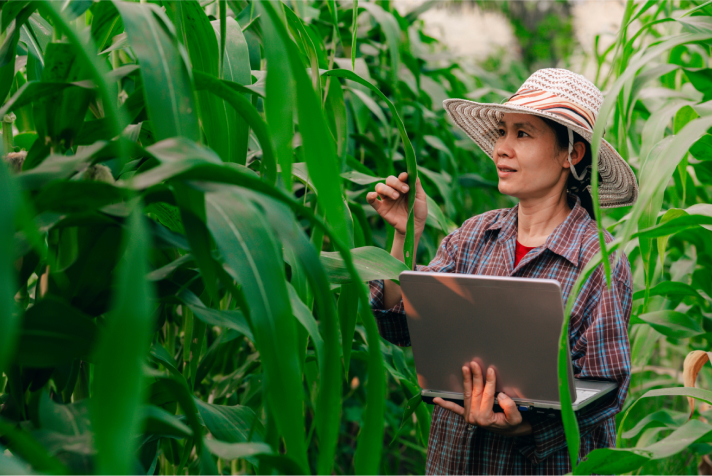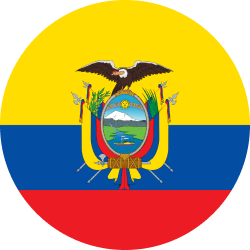Around the world, climate change poses a systemic risk to economies and societies. Land use change, landscape degradation and unsustainable practices in forestry and agriculture contribute to increasing emissions while exacerbating the impacts of climate change on communities and biodiversity. Improving these practices could not only support climate mitigation, but also offer opportunities for sustainable economic development.
COP26 has generated significant momentum around the need to tackle emissions from Agriculture, Forestry and Other Land Use (AFOLU), an area which represents a priority sector for many countries in the target regions to achieve the climate targets set out in their Nationally Determined Contributions (NDCs). However, the lack of robust and appropriate Measuring, Reporting and Verification (MRV) tools – digital communication, data analytics, support decision tools, etc. – and insufficient capacity to implement them is a barrier most countries face to fulfilling the reporting requirements and tracking progress towards their NDC goals in a transparent way.
Additionally, forests and natural ecosystems support the livelihoods of indigenous people and local communities in these countries whose decisions on land and resource use could make a substantial contribution to emissions reduction. MRV tools that are robust, standardised, and aligned with national frameworks can empower these communities with improved resource management, thereby increasing the sustainability of their activities – and access to financing options.
Applications for the Expressions of Interest closed on 13 June 2022. The scheme is not currently accepting new applications, but by signing up for updates you will be kept informed about future funding rounds.
Strengthening national and local MRV tools can contribute to increasing national and global transparency in tracking emissions from AFOLU, thus providing credibility to countries that accurately report progress towards meeting their NDC and COP26 climate commitments.
Effective use of MRV tools at a local level can help empower communities by a.) enabling them to make more effective decisions that increase the productivity, sustainability and resilience of their land and resources, as well b.) providing them with information required to gain better access to finance, like rural credit. Equally, strengthening the capacity of local governments to use MRV tools and data can contribute to enhancing the accuracy and transparency of reported AFOLU emissions, thus supporting better policymaking and the development of carbon markets.
Notably, the implementation of MRV tools alongside the deployment of Nature-based solutions (NBS) can further propel long-term systemic change and complement the current portfolio of UK PACT projects supporting NBS activities, thus multiplying the climate mitigation potential that the programme aims to unlock.

Latin America (Brazil, Bolivia, Ecuador, Peru) and Asia (India, Malaysia, Thailand, Vietnam)








Development and implementation of MRV tools at field level, including scalable methodologies and tools that can support the implementation of sustainable forestry and agricultural practices, enhancement of forest-based removals through monitoring of forest degradation and land use changes, and the development of green supply chains
Development of certification schemes that utilise data to underpin sustainability claims and facilitate mainstreaming of deforestation-free commodities
Strengthening capacity in governments and institutions to effectively utilise MRV tools to a.) collect and utilise data to fulfil reporting requirements following international standards and frameworks b.) inform domestic policy decisions, and c.) demonstrate the meaningful progress towards climate targets
Utilisation of MRV tools for forests, land use and agriculture linked to supporting the development of rural credit options and carbon markets
Projects that only focus on implementing MRV tools to monitor business-as-usual agricultural practices or deforestation without promoting more sustainable agricultural or reforestation practices
Projects that focus on developing new MRV tools and do not include capacity building elements targeting communities and/or policymakers
Projects that create new tools and process ‘in a silo’ with no clear link to the broader national and institutional frameworks in the country
The below projects exemplify the types of solutions that we look to fund, it is not an exhaustive list.
To stay up to date with news about the UK PACT Green Recovery Challenge Fund complete the form below
UK PACT (Partnering for Accelerated Climate Transitions) is a unique capacity-building programme. Jointly governed and funded by the UK Government’s Foreign, Commonwealth and Development Office (FCDO) and the Department for Energy Security and Net Zero (DESNZ) through the UK's International Climate Finance, it works in partnership with countries with high emissions reduction potential to support them to implement and increase their ambitions for tackling climate change.
© Copyright 2023 UK PACT Privacy Notice Cookie Policy